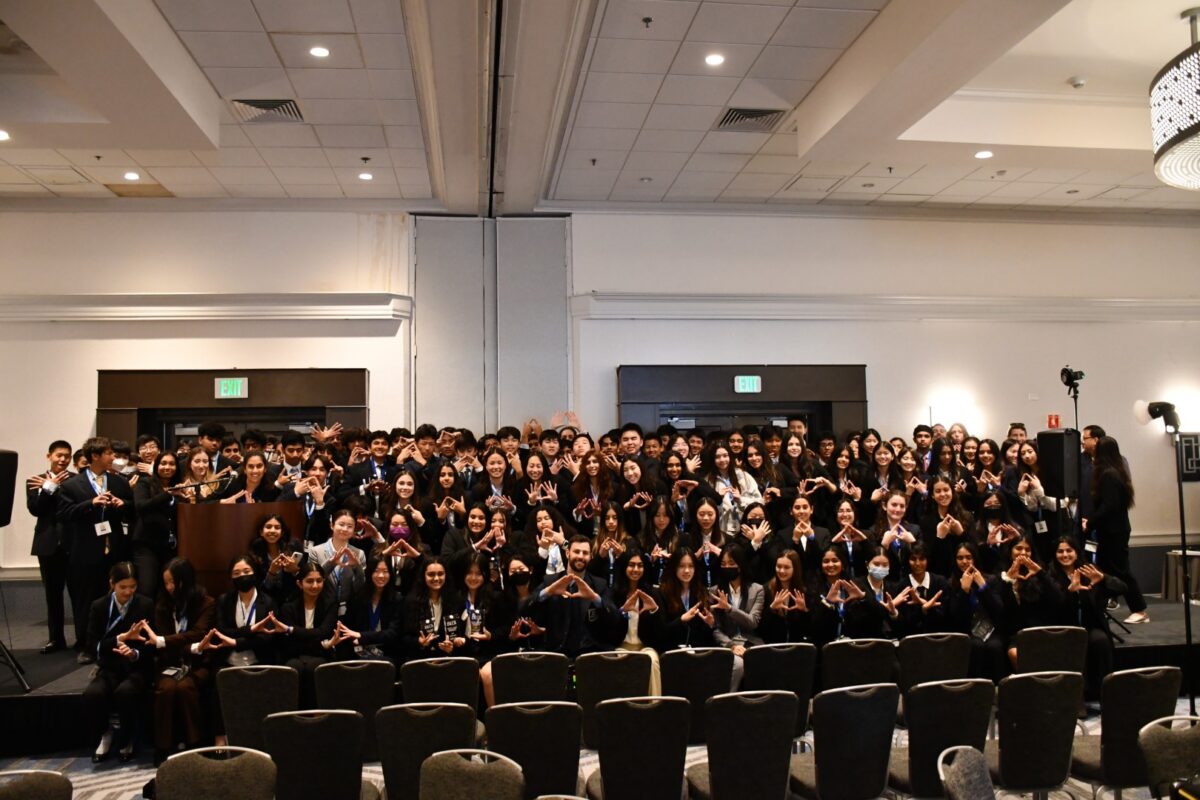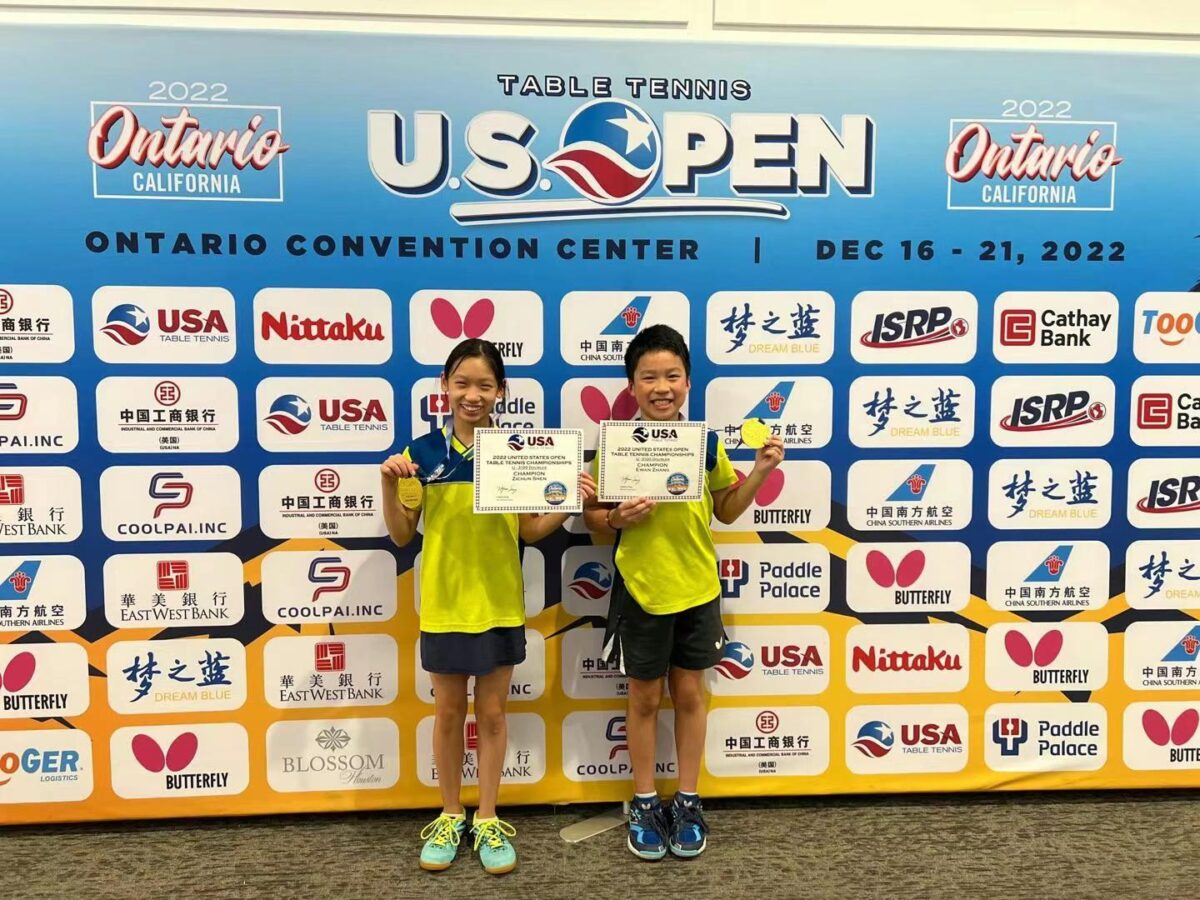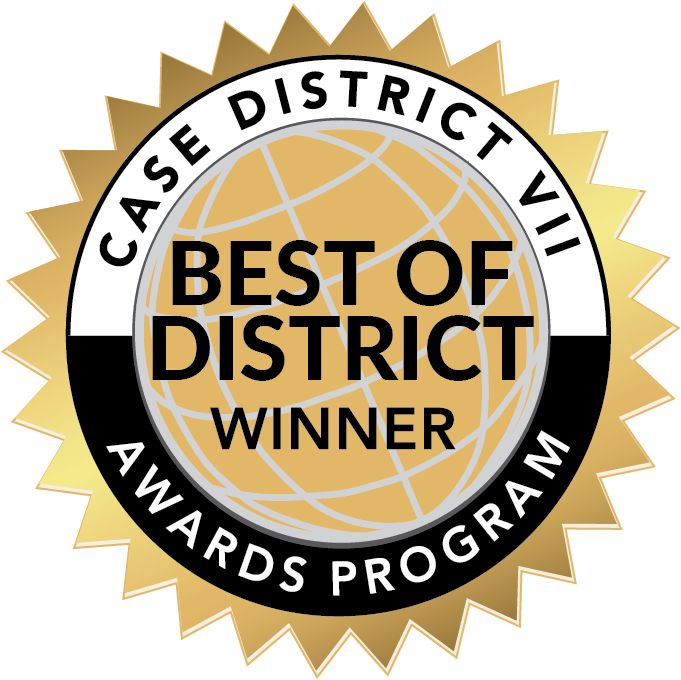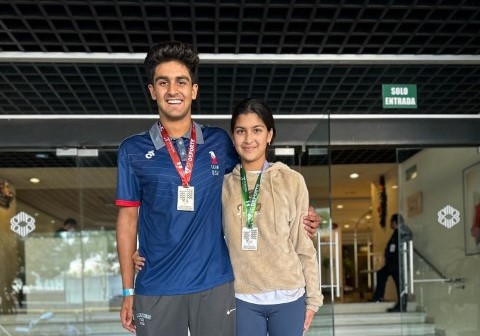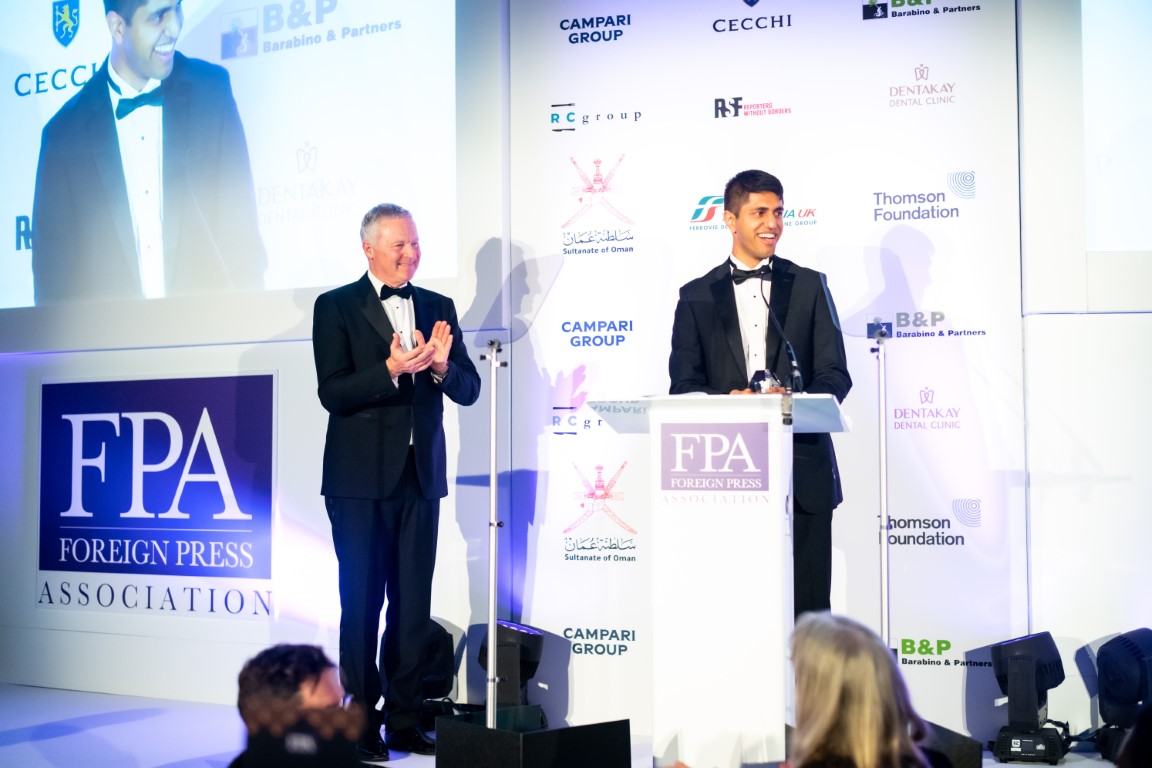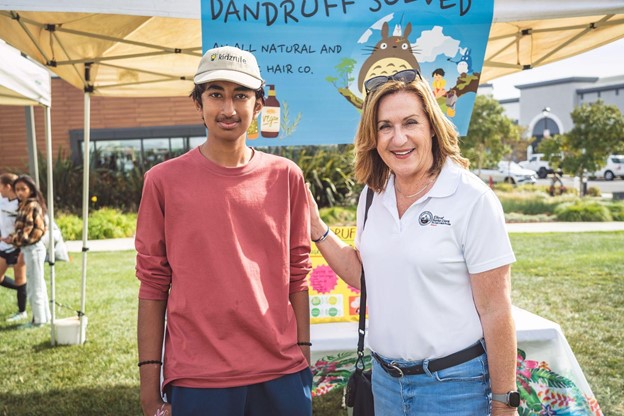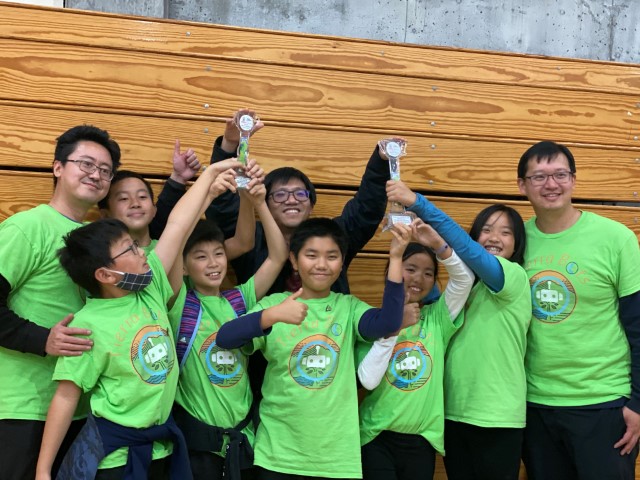More than 120 Harker DECA members attended the regional Silicon Valley Career Development Conference from Jan. 6-8.
express
Student recognized for feature on pro basketball alum
Sophomore Emma Milner’s story on Robert Rothbart MS 2000 received a Best of SNO award from Student News Online.
Sixth grader sees success in table tennis and cross country
At the 2022 US Open Table Tennis Championship, held last month in Ontario, Calif., sixth grader Sophie Chen and her partner took first place out of 66 teams in the U3100 doubles event.
Office of Communication video series wins CASE Best of District VII award
Harker’s Office of Communication (OOC) recently received a Best of District VII award from the Council for Advancement & Support of Education (CASE).
Math Club wins Math Madness championship
The Harker Math Club, coached by upper school math teacher Anu Aiyer, has just won the fall 2022 high school Math Madness championship.
Sibling chess competitors take first at NA Youth Chess Championship
Chess enthusiasts Vyom Vidyarthi participated in the North American Youth Chess Championship in Mexico City from Dec. 1-6.
Bajaj ’20 wins Foreign Press Association Science Story of the Year
Bajaj’s award for his story in the Guardian made him the youngest awardee in FPA history.
Ninth grader organizes fourth Santa Clara Children’s Business Fair
100 young entrepreneurs gave pitches at the Santa Clara Children’s Business Fair
Gr. 5-6 robotics team takes first at FLL event
Team Tierra Bots took first place at a First Lego League Northern California Qualifier event.
Three students, teacher honored in Bow Seat Ocean Awareness Contest
Three Harker eighth graders were named honorees in the Bow Seat Ocean Awareness Contest’s junior division.
